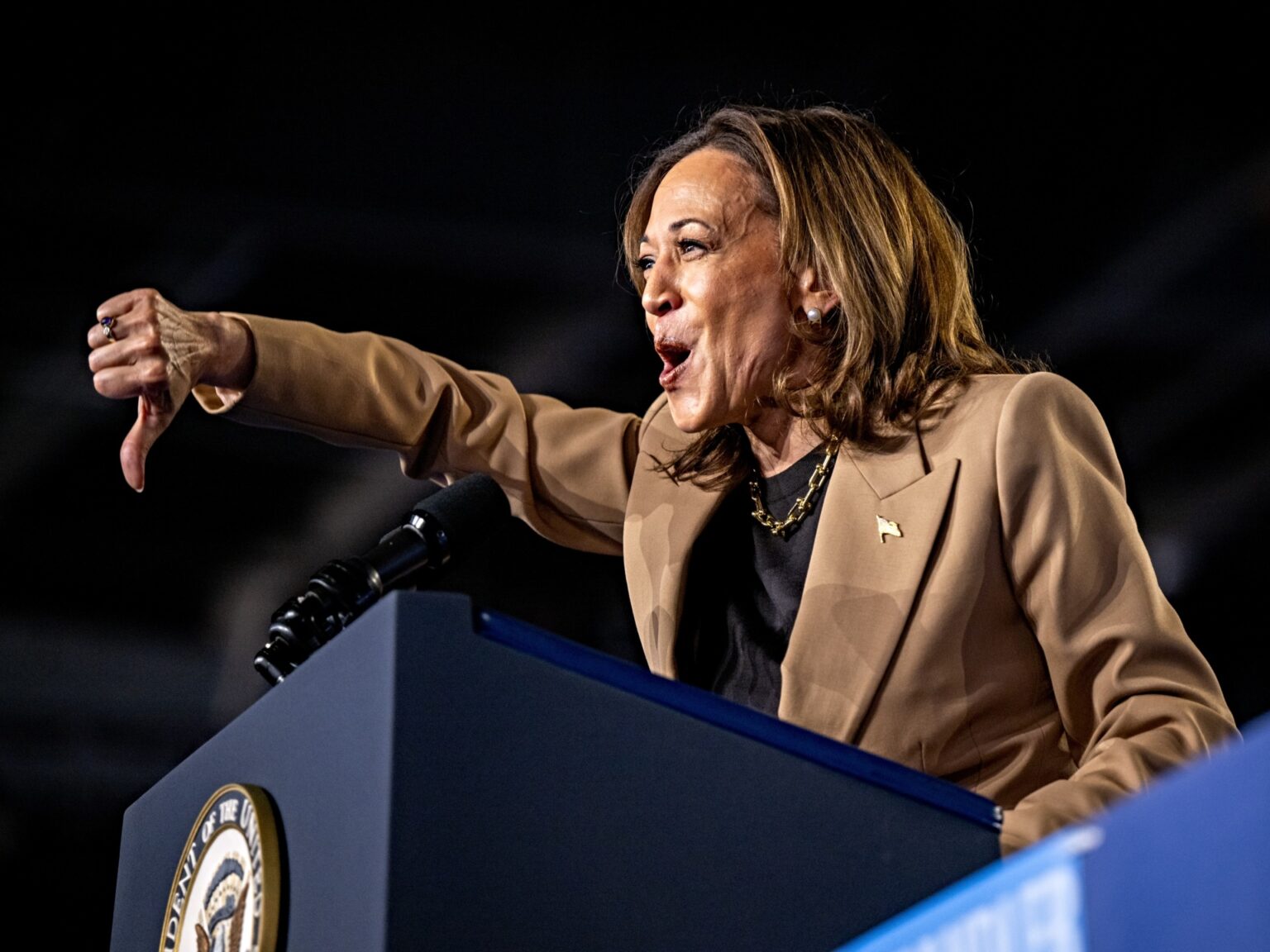Vice President Kamala Harris recently criticized former President Donald Trump for declining to participate in a second debate, labeling his resistance as “weak” during a rally in Chandler, Arizona. She argued that his refusal undermines the rights of voters and portrays a lack of strength in leadership. Harris emphasized that the upcoming election presents two starkly contrasting visions for America: Trump’s focus on the past versus her campaign’s forward-looking agenda. Her remarks come amidst ongoing calls from her team for another debate since their last encounter in September, reflecting a strong desire for direct engagement with the public on the issues at stake.
As the campaign heats up, Trump has indicated that he views the preparation for another debate as unnecessary, particularly as the final stretch of the election approaches. His decision to withdraw from the debate stage has drawn Harris’s ire, suggesting that such a choice is detrimental not only to his campaign but also to the democratic process itself. Despite Trump’s stance, Harris insists that the differences between the two campaigns are already apparent, embodying a fundamental choice between progress and stagnation for American voters.
During her address in Arizona, Harris accepted an invitation from CNN to appear in a town hall later that month, a move intended to showcase her commitment to engaging with voters directly. She projected confidence by asserting that the U.S. is primed for a “new optimistic generation of leadership,” indicating a desire to inspire hope and forward-thinking solutions for the nation’s challenges. Furthermore, Harris depicted the upcoming election as highly competitive, particularly in key swing states critical for securing a victory, thus acknowledging the tight nature of the race.
Harris characterized her campaign as the underdog in this electoral battle, a strategy that she believed could resonate with voters who appreciate a narrative of resilience and determination. She highlighted the reality of a closely contested election, which is likely to come down to the wire. Her recognition of the challenges faced in various swing states, including Arizona, emphasizes the high stakes involved in the upcoming voting process and the need for dedicated grassroots support.
Amidst Harris’s remarks, polling data revealed a challenging landscape for Democrats, showing her trailing Trump in critical swing states. An internal poll from Trump’s campaign indicated that he leads Harris by margins between one and five percentage points in states such as Arizona, Georgia, and Michigan, among others. This data underscores the difficulty her campaign faces as it seeks to close the gap and rally support among undecided and swing voters before the election.
In conclusion, Harris’s statements reflect both a tactical campaign strategy aimed at framing the narrative of strength and optimism, as well as a reaction to the significant challenge posed by Trump’s continued popularity in battleground regions. The Vice President’s call for a vibrant debate and her acceptance of the town hall invitation signify her commitment to engaging directly with the electorate, while also highlighting the obstacles her campaign must overcome in attempting to shift the electoral dynamics in favor of the Democratic ticket. As the election draws closer, the interplay between the candidates and their ability to connect with voters will undoubtedly shape the final outcome of this intense political contest.

